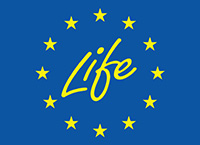New genomic techniques, what comes up?
Despite significant political pressure to reach an agreement among the EU institutions before the European elections in June 2024, the legislative process on the Commission’s proposal on so-called “New Genomic Techniques” (NGTs) is still ongoing. While the European Parliament has reached a position and finalised its official ‘first reading’ of the file (read our view on this in our February press release), all eyes are now on the European Council and the upcoming Hungarian Presidency, which is still struggling to reach a compromise.
Quick refresher: The European Commission’s regulatory proposal on NGTs
Despite these risks and opposition from civil society – more than 420,000 European signed a petition expressing their concerns – the Commission published its legislative proposal on “New Genomic Techniques” to adapt the current regulatory framework on genetic engineering on 5 July 2023. This proposal came after significant political pressure and following a 2021 study from the European Commission.
The draft legislative proposal adopts a differentiated approach in the regulatory framework, based on the risk profiles of the NGT crops, and categorizes NGT crops into “Category 1 NGT plants” and “Category 2 NGT plants”.
- Category 1 crops are less regulated than Category 2 crops: No risk assessment, traceability, and labelling are required anymore – merely a verification procedure and a public register to facilitate transparency on the seed level;
- For Category 2 crops the existing GMO legislative framework still largely applies, except for certain rules related to risk assessment, the provision of detection methods, and additional regulatory incentives for certain crops deemed to be “sustainable”.
After the Commission published its proposal, the so-called co-decision process started. This means both the European Parliament and the European Council (EU Ministers responsible for the topic) try to find their positions on the proposal.
The Parliament rushed to reach an agreement on its position
On 7 February 2024, the European Parliament reached an agreement on their position in its Plenary which it adopted with a narrow majority. On 24 April, the European Parliament voted to close the text’s first reading, which means that the next European Parliament cannot re-open the discussions on their position before trilogue negotiations take place. (A trilogue is the non-public negotiation process between representatives of the European Parliament, the Council of the European Union and the European Commission.)
This process was exceptionally rushed by Members of the European Parliament in charge of the file as they wanted to close the file before the European Parliamentary elections (6-9 June 2024). The text received support mostly from conservative groups (EPP, ECR, ID) and the liberal party (Renew), whereas the social democrats (S&D), greens (Greens/EFA) and left party (GUE/NGL) partially opposed the text.
The text of the Parliament’s position remains close to the Commission’s proposal but introduces some additional provisions on traceability and labelling for Category 1 NGT crops.
All eyes on the European Council now
After two failed attempts by the European Council to reach a “general approach”, once in December 2023 and then again in February 2024, the Council has yet to reach a common position. (A political agreement among European Ministers forming the European Council’s position for trilogue negotiations)
The most divisive issue preventing a general approach among EU Ministers is the impact that patents on NGT plants would have on the European breeding sector (this infographic and open letter explain the issue). There are also several secondary issues. For example, some Member States have concerns about labelling and safeguards for the GM-free and organic sectors.
What happens next and when?
Once the European Council has reached a general approach, trilogue negotiations are expected to start. However, it is unclear how long it will take EU Ministers to agree on a general approach, just like the trilogue negotiations which can only start after that. This highly depends on policymakers’ political will and the scope of discussions around the topic, especially around controversial questions.
This dossier is loaded with controversial topics. To name a few:
- Scientific validity of the proposed equivalence criteria of NGTs to conventional breeding;
- Legislative separation between Category 1 NGTs from Category 2 NGT crops – criticised by various scientific bodies including the French food safety authority (see here its reports from November 2023 and January 2024.);
- Producers’ and consumers’ freedom of choice with questions about full-scale traceability and labelling for all NGTs.
Summing up, there is a lot of uncertainty surrounding the potential timeline of the legislative process. Following the Belgian chairmanship during the first half of 2024, the Hungarian government will take over the Council Presidency from July to December 2024, and which the Polish government will preside.
It remains to be seen to what extent the discussions will proceed under the upcoming presidencies.
Further resources
For detailed information on old and new GMOs (NGTs):
- Check out myths about organic & NGTs,
- Read the paper Sustainability in organic breeding,
- Watch our video explaining what new GMOs are and why we need to keep them regulated,
- Visit our website page on (new) GMOs, or
- Contact [email protected] for more information. Please do note that we prioritise our members’ requests.
IFOAM Organics Europe members can find more information on the member extranet and background materials in the arguments database on the member extranet (main messages, arguments/FAQs, visuals & videos). Contact [email protected] for access rights (issues).
For access to our member extranet and information about what you can gain from being a member, read our membership page and contact [email protected].


The work of IFOAM Organics Europe on this topic is co-financed by the LIFE programme of the European Union, under the Climate, Infrastructure and Environment Executive Agency (CINEA). This page only reflects the views of the authors and its sole responsibility lies with IFOAM Organics Europe. The CINEA is not responsible for any use that may be made of the information provided.

